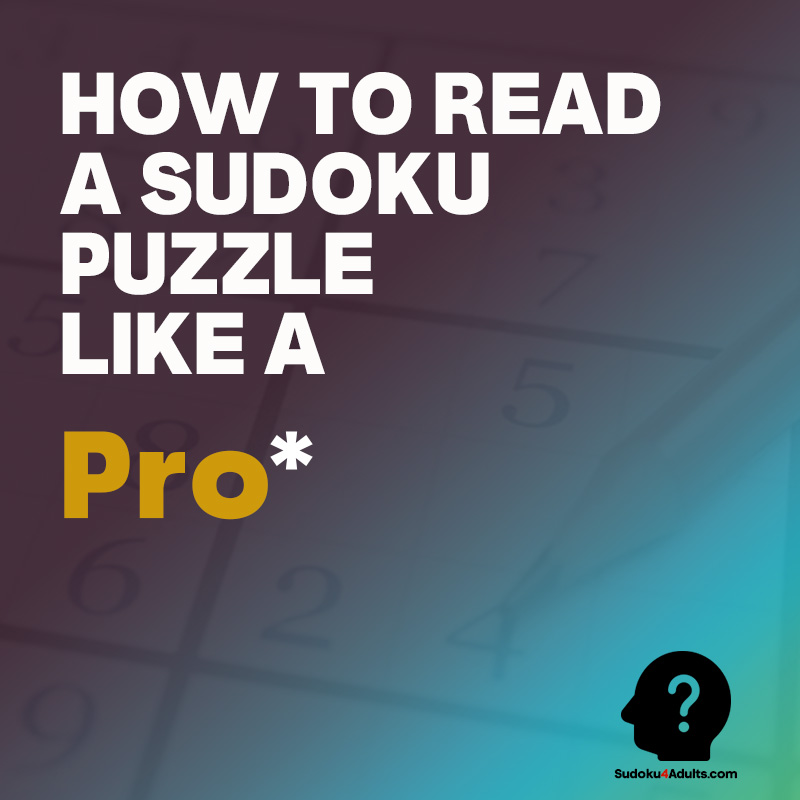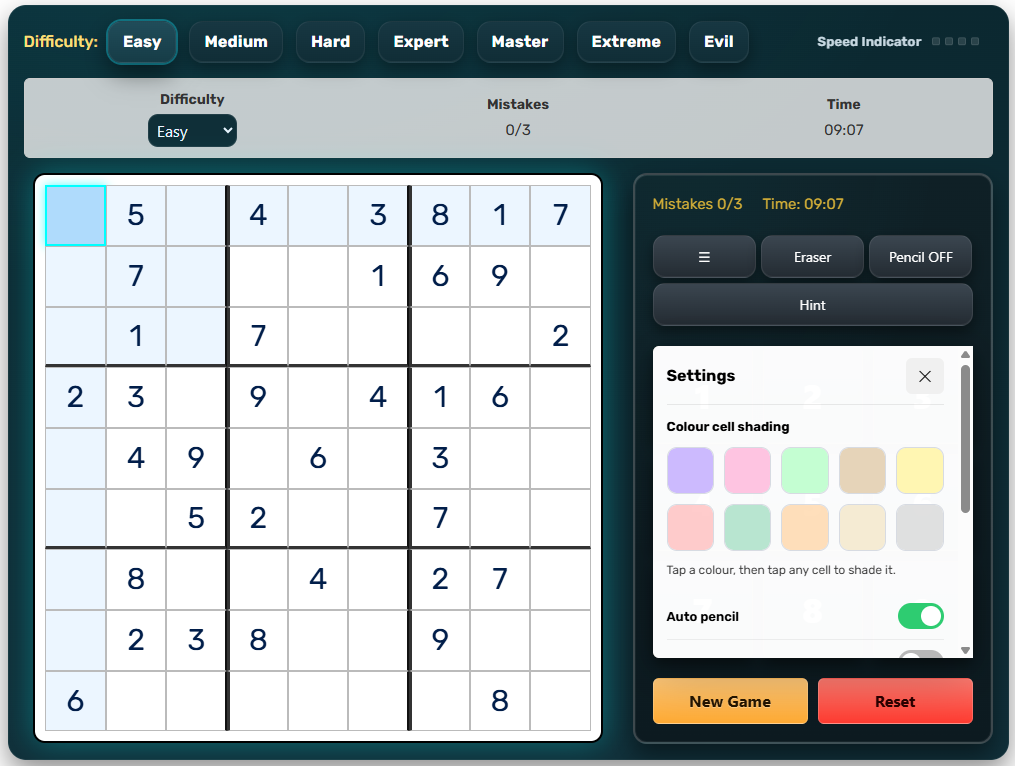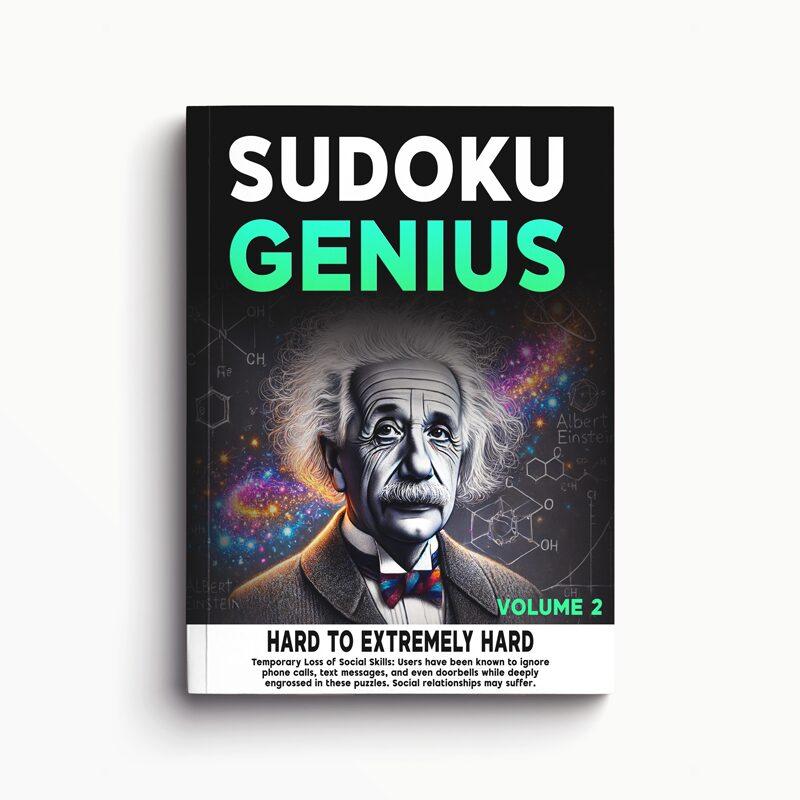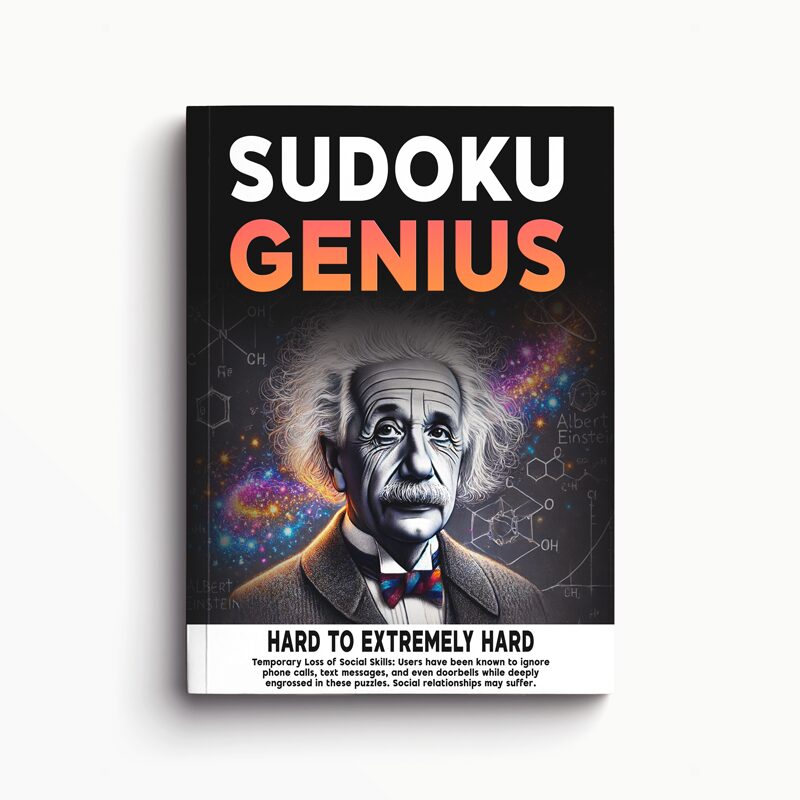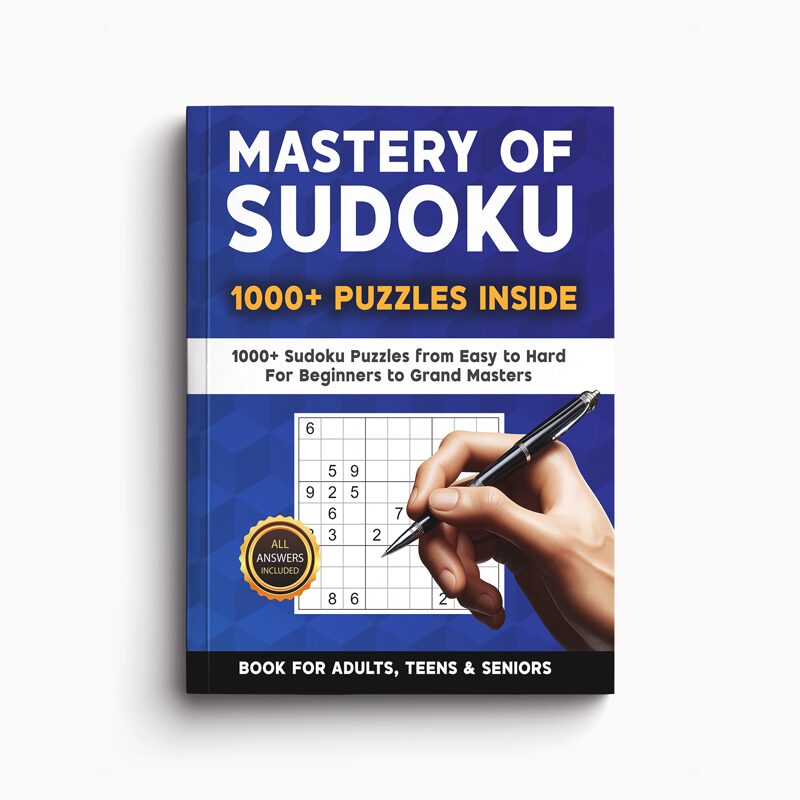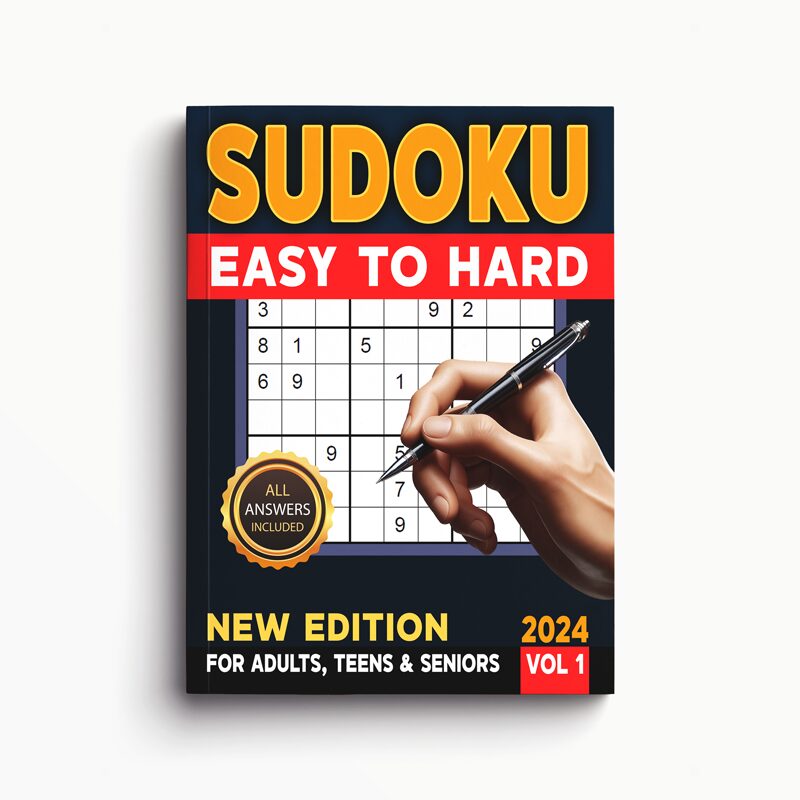Puzzle Lovers Only
Sudoku – a simple grid of numbers or the secret sauce for a sharper mind? 🧩 If you’re a busy puzzle-lover looking for a quick daily brain workout, read on. We’ve compiled the most fascinating sudoku facts that blend puzzle trivia with science-backed insights. In this playful yet informative guide, you’ll learn how Sudoku began, what makes it a mental workout, and how to get the most brain-boosting benefits from your daily 9×9 challenge. Let’s dive into the numbers game that’s equal parts fun and cognitive training!
Sudoku 101: Quick Facts & A Brief History
Before we flex our brain, let’s cover some quick sudoku facts and history for context:
Not Actually Japanese? Despite its name, Sudoku wasn’t invented in Japan. The modern Sudoku puzzle was designed by an American, Howard Garns, in 1979 under the name “Number Place”. It only later gained fame in Japan in 1984, where the name “Sudoku” (short for Sūji wa dokushin ni kagiru, meaning “the digits must remain single”) was coined. In other words, the puzzle’s name literally means “single numbers only,” reflecting the one-of-each rule.
Global Craze Onset: Sudoku remained a niche interest until 2004, when New Zealander Wayne Gould distributed it to newspapers. The Times of London printed the first Sudoku that year, igniting a worldwide craze. By 2005, Sudoku puzzles were ubiquitous in newspapers, magazines, and airplane seat pockets – a daily routine for millions seeking a quick mental kick.
Puzzle by the Numbers: In its classic form, Sudoku is played on a 9×9 grid, and you must place the numbers 1 through 9 so they appear exactly once in each row, column, and 3×3 subgrid. Every proper Sudoku puzzle has a unique solution and at least 17 given clues to ensure solvability. (Fun fact: mathematicians proved you can’t have a valid Sudoku with only 16 starting numbers – 17 is the minimum!). On the flip side, there are 6.67×10^21 possible completed Sudoku grids – talk about replay value!
Sudoku Today: From daily newspaper puzzles to mobile apps and even World Championships (the first was held in 2006), Sudoku’s popularity spans ages and continents. It’s loved as a relaxing pastime and hailed as a “brain game.” But does filling in these little boxes really boost your brain, or is that just hype? Let’s investigate this puzzle’s reputation as the ultimate mental workout.
The Ultimate Mental Workout: Brain Benefits of Sudoku
Is Sudoku just idle entertainment, or is it truly exercise for your mind? Good news: solving Sudoku is more than just fun – it gives your brain a serious workout. Here are the top science-backed brain benefits of playing Sudoku regularly, explained in an approachable way:
Sharper Memory and Focus: Ever notice how you concentrate deeply on a Sudoku, remembering which numbers are possible in each cell? That’s your working memory and focus getting a workout. Research shows that engaging in number puzzles like Sudoku improves memory, attention, and concentration. By tracking numbers and scanning the grid, you’re training your brain to store and recall information more efficiently – just like a mental sticky note system.
Improved Problem-Solving Skills: Sudoku is essentially a problem-solving exercise. You start with a problem (an incomplete grid) and use logic to solve it. This strengthens your logical reasoning and critical thinking muscles. Puzzle enthusiasts often find that after regular Sudoku sessions, they can think through everyday problems more clearly. It’s no surprise that Sudoku is used in classrooms and brain-training apps to boost executive function (the brain’s ability to make decisions and solve problems).
Increased Mental Speed and Flexibility: Treat Sudoku like speed drills for your brain. As you get better, you’ll notice you can fill in cells faster and switch strategies on the fly. A large UK study of over 19,000 adults found that frequent puzzle players had brain function equivalent to people 8-10 years younger on tests of mental speed and reasoning. Regular Sudoku solving keeps your thinking quick and adaptable, which can translate to being sharper at work or multitasking at home.
Memory Retention Boost: Sudoku makes you juggle multiple numbers and possibilities in your mind. This engages your short-term memory continually. Over time, just like lifting weights builds muscle, daily mental workouts like Sudoku can strengthen your memory. Many seniors pick up Sudoku for this reason – to keep the mind active and potentially slow cognitive aging. In fact, one study found puzzle enthusiasts had brain function scores as if they were years younger than their actual age!
Stress Reduction and Calm Focus: Believe it or not, focusing on a Sudoku can be meditative. When you’re absorbed in a puzzle, everyday worries often fade away. Sudoku encourages a state of calm, focused attention, similar to mindfulness. Solving a puzzle can reduce stress and anxiety by diverting your mind to a single engaging task. The sense of accomplishment when you fill that last cell gives a little dopamine rush – a feel-good reward for your brain. It’s like a mini mental vacation in the middle of a busy day.
Cognitive Reserve (Brain Resilience): While puzzles aren’t a magic shield against dementia, scientists suggest that mentally stimulating activities like Sudoku build up your brain’s “cognitive reserve.” Think of it as brain resiliency: the more you challenge your brain, the more it can cope with aging. Studies indicate that although Sudoku won’t prevent age-related mental decline outright, it can raise your starting cognitive level, meaning any decline happens from a higher baseline. In simple terms, regular puzzle-solvers might stay functional longer even if physical brain changes occur with age.
🧠 Fun Fact (Call-Out): A clinical study found that people who do Sudoku or crosswords every day have brain performance comparable to those 8 years younger on memory. In other words, your daily Sudoku might just be keeping your mind younger and sharper!
Of course, balance is key – Sudoku is one great tool in your brain-health toolkit, alongside others like physical exercise, social activity, and adequate sleep. But there’s no doubt about it: as far as mental workouts go, Sudoku is a powerful (and enjoyable) exercise for the brain.
Sudoku and IQ: Does Solving Puzzles Make You Smarter?
One of the most common sudoku facts you’ll hear is that “Sudoku can increase your IQ” – but is this fact or fiction? The answer is a bit nuanced. Let’s break down what Sudoku does (and doesn’t do) for your intelligence:
The Claim: Sudoku will boost your IQ score or make you smarter overall.
The Reality: Sudoku does improve your mental skills – but that doesn’t necessarily mean your formal IQ number will jump. Here’s why:
Skill-Specific Improvements: When you practice Sudoku, you undeniably get better at logical thinking, pattern recognition, and concentration (all components of intelligence). You might find yourself solving puzzles faster over time, which shows your brain is learning and optimizing. These improvements can spill over into related tasks (for example, you might organize information or spot patterns at work more easily thanks to your puzzle hobby). In that sense, Sudoku makes you “smarter” in areas of logic and strategy.
IQ Tests vs. Brain Health: IQ tests measure a broad range of cognitive abilities. Sudoku primarily exercises a subset of those abilities (especially logic, working memory, and attention). So while regular Sudoku solving can sharpen your mind, it might not significantly raise your IQ score on its own. Think of it like physical fitness: doing daily push-ups will make you stronger, but it won’t necessarily make you a decathlete. Sudoku will make your brain fitter and faster, but expecting a drastic IQ jump is probably fiction.
Studies and Expert Opinions: Scientific studies have mixed conclusions. Some research suggests that frequent puzzle players perform better on cognitive tests (which is encouraging). However, other experts note that the benefits might be specific to the puzzles and not a general IQ increase. In one Scottish study, puzzles didn’t prevent mental decline with age, but they seemed to set people up with a higher starting point of brain function – meaning any decline happened more slowly from a higher level. This implies Sudoku helps maintain your cognitive abilities rather than magically boosting them overnight.
Brain Training Myth Busting: The brain-training industry often claims games will dramatically increase IQ or make you a genius. The truth: Sudoku isn’t a miracle pill for intelligence. Instead, consider it one of many healthy brain habits. It keeps your mind active and engaged, which is far better than passive activities like mindlessly watching TV. Over time, an active brain is a more adaptable, resilient brain.
Bottom Line: Sudoku makes you sharper, not necessarily “smarter” in a way a test would measure. You’re honing specific mental muscles – think of it as lifting weights for your brain. Don’t expect to turn into Einstein just from puzzles, but do expect better focus, quicker thinking, and a more confident approach to tackling mental challenges. In the grand scheme, that’s a pretty awesome payoff for a daily puzzle!
Making Sudoku Your Daily Mental Workout: How to Get Started (Step-by-Step)
Ready to harness those brain benefits? Here’s how to turn Sudoku into a daily mental workout habit, even for a busy schedule. Follow these simple steps and tips to get the most out of your puzzles:
Pick Your Puzzle Time: Consistency helps. Decide on a time of day that fits your routine – maybe with your morning coffee or during a lunch break. Even 10-15 minutes a day is enough. Treat it like a scheduled “brain gym” session. For example, every evening after dinner, unwind with a Sudoku.
Start Easy, Then Level Up: If you’re new or rusty, begin with easy puzzles to build confidence and prevent frustration. Sudoku4Adults.com offers puzzles by difficulty – start at Easy or Medium and gradually progress to Hard or Expert as you improve. Like any workout, warm up before tackling the heavy lifting!
Learn Basic Strategies: At first, you might solve by trial and error, but learning a few strategies will make Sudoku more rewarding. Techniques like scanning, cross-hatching, and penciling in possible numbers can drastically improve your solve speedsudoku4adults.com. (Check out our Sudoku Tips & Techniques page for a handy guide on strategies every solver should know.)
Challenge Yourself (But Keep It Fun): As puzzles get easier, don’t plateau – try harder levels or different variants (like 4×4 mini Sudoku or 16×16 giant Sudoku) to keep your brain on its toes. Variety ensures you’re continuously learning new patterns. Feeling bold? Time your solves and aim to beat your personal record for an extra mental jolt.
Stay Patient and Mindful: Sudoku is a mental exercise, not a race (unless you want it to be!). If you get stuck, take a short break or switch to a fresh puzzle. It’s normal for tough puzzles to require pauses. Enjoy the process of thinking it through. Remember, the goal is to engage your brain and have fun. The more you enjoy it, the more likely you’ll make it a habit.
Track Your Streaks: Make Sudoku a daily ritual by tracking your progress. Mark an “X” on a calendar for each day you complete a puzzle or use a habit-tracking app. A streak can be very motivating – you won’t want to break the chain! Some online Sudoku platforms (like the Daily Sudoku Challenge on our site) even offer calendars and stats to keep you motivated and show improvement over time.
Mix It Up with Friends: Everything’s better with a buddy. Challenge a friend or family member to solve the same puzzle and compare times, or compete in our weekly Sudoku tournament for a social brain workout. A little friendly competition or shared fun can reinforce your routine and make the habit stick.
Puzzle Pro Tip: Treat Sudoku like brain meditation. When solving, give it your full focus and enjoy the escape from daily stressors. Just 10 minutes of Sudoku a day can become a refreshing ritual that centers your mind – a mental workout and relaxation session in one.
Finally, don’t forget to celebrate your wins! Finished a puzzle (even an easy one)? Give yourself a small kudos. Completed a whole week of daily Sudokus? Maybe reward yourself with a new puzzle book or app. Positive reinforcement will keep you coming back for more.
Ready to put this into practice? 👉 Start your Sudoku brain workout now – play a free puzzle!
Surprising Sudoku Trivia & Fun Facts
Beyond brain health, Sudoku has some pretty cool trivia associated with it. Impress your fellow puzzle geeks with these fun sudoku facts:
Sudoku’s True Origin: As mentioned, modern Sudoku is based on an American puzzle (Number Place) from 1979en.wikipedia.org. But its concept goes back even further – to 18th-century Swiss mathematician Leonhard Euler and his “Latin Squares”sudoku4adults.com. Euler’s idea of arranging symbols so they appear once per row/column was a precursor to Sudoku’s design. So while Japan popularized Sudoku, its ancestry spans cultures – from Swiss math problems to French newspapers in the late 1800s that featured similar number puzzles!
Meaning of “Sudoku”: In Japanese, Su means number and Doku means single. So “Sudoku” = “single numbers”sudokulovers.com – a fitting name for a puzzle where every number can appear only once in each line or box. Interestingly, in Japan the puzzle was initially called “数字は独身に限る” (Sūji wa dokushin ni kagiru), which is a longer phrase meaning “the digits must remain single”sudoku4adults.com. Thank the publisher Maki Kaji (often called the “Godfather of Sudoku”) for coining the catchy name Sudoku that we use today.
Record-Breaking Sudoku: How fast can a human solve a Sudoku? The world record is jaw-dropping – around 1 minute 23 seconds for a standard Sudoku puzzle, achieved by a lightning-fast solver in 2018. Competitive players can fill 81 cells in the time it takes most of us to input a phone number! There’s even an annual World Sudoku Championship (since 2006) where national champions go head-to-head on wickedly hard puzzles.
Almost Endless Puzzles: You could solve a new Sudoku every day for many lifetimes and never repeat the same puzzle. There are 6.67 sextillion possible Sudoku gridsen.wikipedia.org (that’s 6.67×10^21). Even if a computer printed a unique puzzle every second, it would take millions of years to run out! In terms of unique solutions, Sudoku far outstrips other puzzles like crosswords. No wonder it never gets old – there’s always another puzzle waiting.
The 17-Clue Conundrum: Puzzle designers have tried to create a valid Sudoku with fewer than 17 givens (starting numbers), but none exist. It’s proven that 17 clues is the minimum for a unique solutionen.wikipedia.orgen.wikipedia.org. If you ever see a Sudoku with only 17 starting numbers, know that you’re holding an ultra-minimalist puzzle. And if you see one with 16… it won’t have a unique answer! On the flip side, an easy Sudoku might start with 35 or more clues given.
Sudoku in Pop Culture: Sudoku’s craze in 2005-2006 led to puzzle books outselling some novels! It has appeared in TV shows and movies as a symbol of braininess or geek-chic pastime. There’s even a Sudoku episode of The Simpsons and references in mystery novels where characters solve puzzles to unwind or even to crack codes. Sudoku has truly become a cultural icon of smart fun.
These trivia tidbits show that Sudoku isn’t just another puzzle – it has a rich history and a global impact. Next time you fill in a Sudoku grid, remember you’re part of a worldwide community spanning decades, all connected by this simple yet brilliant “single numbers” game.
Frequently Asked Questions (FAQ) about Sudoku & Brain Training
Below we answer some common questions puzzle enthusiasts (and curious newcomers) have about Sudoku, its benefits, and how it compares to other brain games. Got a question about Sudoku as a mental workout? We’ve got you covered:
Puzzle Your Way to a Sharper Mind
By now, it’s clear that Sudoku is far more than a casual game in the newspaper – it’s a daily mental workout disguised as fun. From boosting your brainpower and concentration to providing relaxation and satisfaction, this humble number puzzle packs a punch for your cognitive health. Plus, armed with these sudoku facts and trivia, you’ve gained an extra appreciation for the game’s history and impact.
So, whether you’re looking to keep your mind young and sharp, or you just love a good challenge, Sudoku is the perfect fit. Ready to put theory into practice? Grab a puzzle (or open our online Sudoku game), and let the mental gymnastics begin. Happy puzzling – your brain will thank you for it! 🧩🧠
Start your journey: 👉 Play Sudoku Now – Train Your Brain Today!
